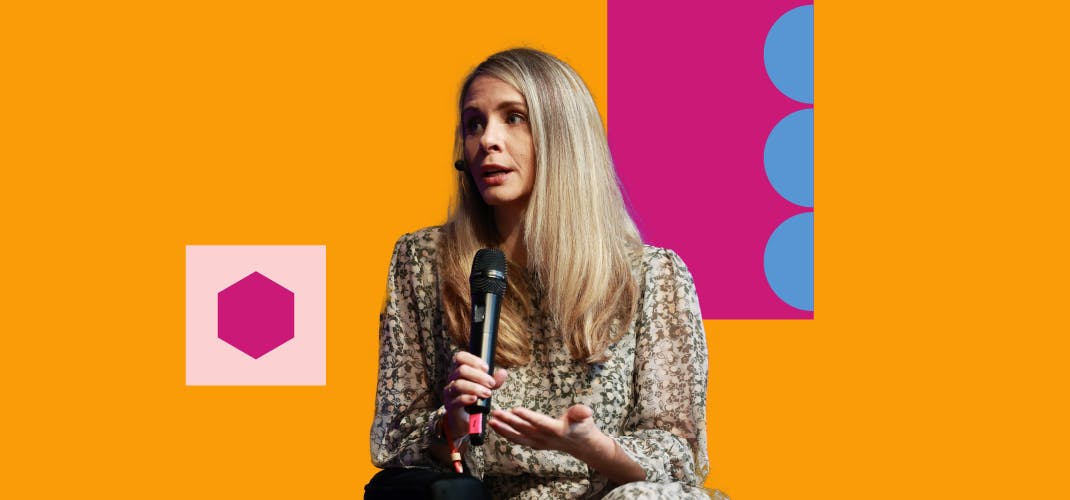
Web Summit for startups: ‘amazing’ contacts, ‘pivotal’ media exposure, ‘accelerated’ funding rounds
What are three of the biggest benefits of attending our events? According to these founders: market expa...

Collision 2023 was a truly unmissable event, bringing together tech moguls, entrepreneurs, and the world’s top speakers.
Take a look at what PitchBook senior analyst Kyle Stanford and Alfred Chuang, co-founder and general partner at Race Capital had to say about the state of the investment sector and what lies ahead.
Things may have stabilized for now, but the ripples of the collapse of SVB are still being felt across the tech sector, and a lack of liquidity for VCs means they can’t supply as much runway for early-stage startups, creating a major pressure point for a large section of the industry.
“Now you have to go to non-bank lending institutions, because I don’t think the big banks have the gumption.”
– Michael Yang, managing partner at OMERS Ventures
“One of the things that people underestimated is how fiscally poorly we manage money in general in Silicon Valley,” said Alfred Chuang, co-founder and general partner at Race Capital.
“SVB was really embedded in our ecosystem,” said Michael Yang, managing partner at OMERS Ventures. “Now you have to go to non-bank lending institutions, because I don’t think the big banks have the gumption.”
Lessons are being learned quickly, though, with VCs and founders brushing up on their knowledge of banking and treasury regulations.
“I think it was a lesson that needed to be taught, because – before – there was no discipline. Everyone had too much cash,” said Eva Ho, general partner at Fika Ventures.
Artificial intelligence dominated investor interest at Collision, with nearly three-quarters of respondents to PitchBook’s latest survey indicating that they’ve made investments in the space recently. Last year, fintech and blockchain were selected as the technologies with the most disruption potential.
“We’ve seen venture activity decline in response to ongoing headwinds in the market,” said PitchBook senior analyst Kyle Stanford. “VC fundraising could be on track to drop to levels not seen since 2017, in line with investor sentiment seen in the survey results, and dealmaking activity recently fell below the long-term growth trendline.”
 Kyle Stanford, Senior Analyst & US Venture Lead, PitchBook on Venture Stage during day two of Collision 2023. Image: Vaughn Ridley/Web Summit (CC BY 2.0)
Kyle Stanford, Senior Analyst & US Venture Lead, PitchBook on Venture Stage during day two of Collision 2023. Image: Vaughn Ridley/Web Summit (CC BY 2.0)
Similar to in other regions around the world, Canada’s VC ecosystem has seen a pullback in activity following the exuberance of recent years.
Canadian startups raised US$3.5 billion in the first two quarters of the year – a drop of 50 percent on the 2021 and 2022 average, but an indication that activity in 2023 is on pace to exceed the more normal numbers seen in 2019.
“For the most part, these findings correspond with what we’re seeing at Collision,” said Web Summit head of startups and investors Ricardo Lima.
“However, we have found that the percentage of startups who have received funding within the 12 months since Collision 2022 is healthy [more than US$565 million was raised by just 11 percent of that year’s startup cohort], despite the negative trend in fundraising activity.”
While seed-stage investment in the US weathered the downturn better than other funding stages, it finally started to slip in 2023. According to 2048 Ventures general partner Neha Khera, it hasn’t been easy.
“It’s been a tumultuous couple of years,” said Neha. “Valuations at pre-seed and seed, ironically, haven’t come down that much but in terms of the growth stage, we’re definitely seeing less capital … and valuations have come down significantly.”
Cendana Capital partner Kelli Fontaine elaborated on the seed-stage climate and discussed how founders are addressing it: “Seed rounds have stayed much larger, because people don’t want to go out and raise in 12 to 18 months. They want two years of runway to know where the markets are and to be able to have more runway to build.”
As for advice for founders, Kelli highlighted how “FOMO 2021 was not the time to be building or investing. Now is. And so it will be harder, but the outcomes will be better”.
Hospitality software startup Syzl won PITCH at Collision 2023, with founder Azrah Manji-Savin seeing off dozens of competitors to land the top prize.
Syzl is a fast-growing platform, aiming to revolutionize the food industry by connecting food makers with underutilized commercial kitchen spaces. The app currently caters to more than 1,000 users, and there are 70 kitchens on the platform.
 PITCH winner Azrah Manji-Savin, Syzl, with the PITCH trophy backstage at Centre Stage during day three of Collision 2023. Image: Ramsey Cardy/Web Summit (CC BY 2.0)
PITCH winner Azrah Manji-Savin, Syzl, with the PITCH trophy backstage at Centre Stage during day three of Collision 2023. Image: Ramsey Cardy/Web Summit (CC BY 2.0)
Although Syzl is based in Toronto – one of the world’s food capitals – founder Azrah Manji-Savin is based in Calgary and proudly represents Western Canada.
Azrah attended last year’s Collision in the very early days of Syzl, before the startup had a minimum viable product. It was here that Azrah met a developer who would go on to become a key member of the Syzl team.
Azrah’s own personal history, together with a love for food, made the hospitality industry a natural fit.
“This is amazing! I’m living my dream job,” said Azrah.
“I’m a second-generation immigrant. My parents came to this country. My co-founder’s parents are immigrants too. And the easiest and quickest way for immigrant communities to make money is to sell food. The problem is that they’re stuck because they cannot scale, and because they’re all working from home.
“We were so passionate about finding something to support these communities so that they’re able to scale and grow, because this is the economy’s backbone – especially for women and people of colour.”
Main image of Kelli Fontaine, Partner, Cendana Capital, during Venture at Collision 2023: Vaughn Ridley/Web Summit (CC BY 2.0)

What are three of the biggest benefits of attending our events? According to these founders: market expa...

2018 PITCH winner Wayve recently secured an incredible round of ...